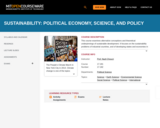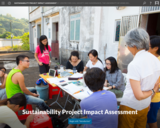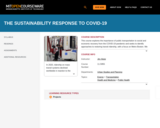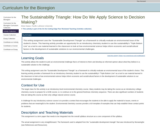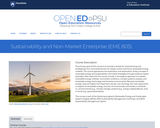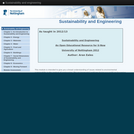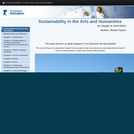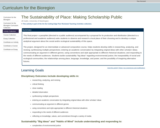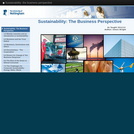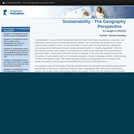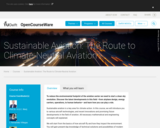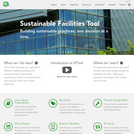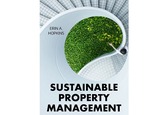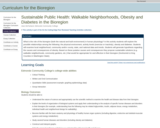Sustainable Property Management is a 150-page, peer-reviewed open textbook intended for students majoring in property management and real estate at both the undergraduate and graduate levels. It can be incorporated into an existing property management operations course or used for a stand-alone course focused on sustainable property management. Although sustainability, as used in the real estate context, is about preserving the environment, it is about more than that. In sustainable property management, sustainability encompasses three spheres—environmental, social, and economic. Sustainable property management is about reconciling these three spheres throughout the operations and maintenance phases of the building lifecycle in such a way that a balance is achieved between economic development and the protection of environmental and social resources.
This textbook explains how ecologically sustainable concepts may be implemented throughout the property management operation functions while also considering the other spheres of sustainability. It also incorporates the theme of sustainable building practices as a human science as well as a building science by highlighting motivations and impacts to various stakeholders. The author draws on industry examples to illustrate these concepts and provides many experiential activities through which students can apply these concepts.
Are you reviewing or adopting this book for a course?
Please help us understand your use by filling out this form https://bit.ly/interest_sustainable_property_management.
How to Access the Book
The main landing page for this book is https://doi.org/10.21061/sustainable_property_management. The open textbook is freely available online in multiple formats, including PDF, ePub, and Pressbooks https://pressbooks.lib.vt.edu/sustainablepropertymanagement.
A softcover print version is available for order here.
ISBN
ISBN PDF 978-1-957213-38-5
ISBN Pressbooks 978-1-957213-40-8
ISBN ePub 978-1-957213-39-2
ISBN Print (color) 978-1-957213-37-8 https://www.amazon.com/dp/195721337X.
Table of Contents
Chapter 1: Introduction to Sustainable Property Management
Chapter 2: The Three Spheres of Sustainable Property Management
Chapter 3: Stakeholder Motivations for Sustainable Property Management Practices
Chapter 4: Sustainable Building Maintenance and Repair Practices
Chapter 5: The Intersection of Sustainable Property Management and Risk Management
Chapter 6: Integrating Sustainable Practices into Marketing and Leasing
Chapter 7: Financial Evaluation of Sustainable Building Initiatives
Chapter 8: Human Health Considerations
Find, Adapt, and Share Resources
Customizable class slides for this book are available at http://hdl.handle.net/10919/113422.
Instructors are encouraged to share their relevant, original, and openly-licensed teaching resources via the Instructor Resource Portal in OER Commons.
About the Author
Erin A. Hopkins, PhD, serves as an Associate Professor of Property Management within the College of Liberal Arts and Human Sciences at Virginia Tech, where she teaches courses in property management operations and sustainability in the built environment. She has been awarded Virginia Tech’s Teacher of the Week and has received recognition in Virginia Tech’s “Thank a Teacher” program multiple times. She has twenty-three published journal articles and has served as an associate editor for the textbook Practical Apartment Management (7th ed.), Journal of Green Building, Encyclopedia of the UN Sustainable Development Goals, and Encyclopedia of Sustainability in Higher Education. She also serves on the Institute of Real Estate Management (IREM) Foundation’s Board of Directors and IREM’s Environmental, Social, and Governance (ESG) Advisory Council.
Suggested Citation: Hopkins, Erin A. (2023). Sustainable Property Management. Blacksburg: Virginia Tech Department of Apparel, Housing, and Resource Management. https://doi.org/10.21061/sustainable_property_management. Licensed with CC BY NC-SA 4.0.
Errata and Error Reporting
Errata
Report an Error
Accessibility
Virginia Tech Publishing is committed to making its publications accessible in accordance with the Americans with Disabilities Act of 1990. The Pressbooks (HTML) and ePub versions of this text are tagged structurally and include alternative text, which allows for machine readability.
Cover Art: Danist Soh via https://unsplash.com/photos/XufAxQTncGY
Illustration and Cover Design: Kindred Grey



